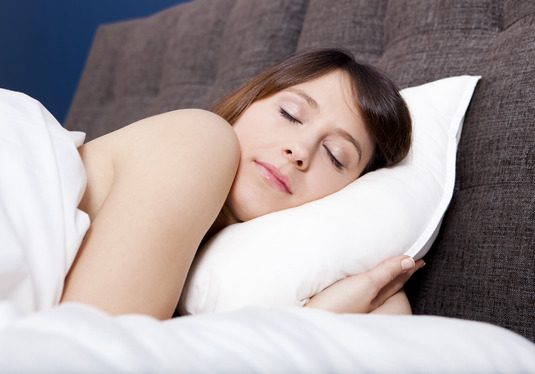Sleep is one of the most poorly-understood phenomena in all of biology. Most specialists agree that solid sleeping routines and a comfortable bed are essential to a more productive and tranquil life. This is largely because it concerns the most complicated organ in the body, the brain. But while we do not yet fully understand what sleep does, we can observe what a lack of it might do. Sleeplessness has been linked with obesity (since it interferes with the release of the body’s ‘hunger’ hormone, ghrelin); chronic stress and a decline in the immune system.
Unfortunately, human beings are more sleep-deprived than they ever have been. Our modern, twenty-four hour economy is in constant need of workers – and sometimes the demands it places on those workers can degrade the quality of their sleep.
Shift work is entirely at odds with the biological mechanisms which govern sleep. If one is expected to rise at different times of the day every day, then the body’s ability to regulate sleep will be shattered. A shift worker might return home, looking to get to sleep almost immediately and find themselves unable to do so. This culture has, in turn, fed a demand for huge amounts of sugar and caffeine. The same, too, is true of those who have to travel often between different time zones.
Sure enough, studies have shown that both night-shift workers and flight personal have indicated that each have an increased risk of contracting breast cancer: the former by 50% and the latter by more than 70%.
Our bodies are predisposed to sleep at certain times and to wake at others – and interfering with this cycle can be harmful in ways we do not appreciate. By getting our sleep routines thoroughly ingrained, we can help to limit these negative effects. With that in mind, let’s take a look at some of the ways we can ensure that we get the best possible quality of sleep. First things first have you got good quality bedding, a nice thick duvet, and either thin, fluffy, sinking or hard pillows (depending on your preference) to ease your weary head into?
How to sleep
Sleep is something we’re all well-practiced in – to the extent, in fact, that it might seem patronising to have it explained. But while some of our night-time rituals might help us to get to sleep, others will have the opposite effect.
For example, it is critical to make your bedroom as dark as possible, since the human body has evolved to sleep during the night-time. Ideally, many experts recommend that you reduce your exposure to light for around half-an-hour before bed. This is because light makes you more alert, and resets your body clock – the very last thing you want moments before attempting sleep!
This particular piece of advice is at odds with most of our night-time rituals. What do most of us do moments before we retire for the night? We stand in a brightly-lit bathroom for two minutes while we brush our teeth. This ensures that our teeth are as healthy as possible, to be sure – but only at the expense of our precious sleep.
Of course, no-one should suggest that one refrain from brushing one’s teeth. The timing of this particular ritual could simply be adjusted. By brushing your teeth half-an-hour earlier, you can ease yourself more gradually into sleep.
The same goes for mobile devices, tablets and computers – whose bright backlights cause us to be more alert and awake and whose contents provide us with mental stimulation, to the same effect. Is it any wonder that the quality of our sleep should suffer, if the last thing we do before bed is to check Twitter or Facebook? The solution is simple – unplug yourself until the morning. When morning comes, wake yourself up with natural light and noise – this way you’ll reset your internal clock and help yourself get to sleep later on!
How should one spend the time shortly before going to sleep? Well, music, reading and light stretching can all help the mind to relax. Everyone is different and so everyone requires different methods to help them unwind before bed. Experiment and see which is right for you. An uncomfortable bed will also make sleep difficult and so it is often well worth investing in newer, more comfortable bedding; when one considers the extent to which sleep influences quality of life in general, the investment is often more than worthwhile.
Another recommendation worth recommending is sex. Leaving to one side all of its other agreeable effects, sex goes a long way toward helping us to sleep better. While other forms of exercise help to make us more alert, sex has the opposite effect and will make you feel more lethargic – perfect for just before bedtime.
How not to sleep
Many of us struggle to cope with mornings – often to the point that we need to perk ourselves up with a stimulant. Anyone who’s ever taken an early-morning commute in a busy metropolitan area will have seen hordes of office workers, clutching their paper coffee-cups for dear life. Those of us who are particularly sleep-deprived might reach for another cup by mid-morning. Some people, if feeling particularly beleaguered, might even reach for more damaging substances like nicotine, speed and even cocaine.
Suffice to say, this is not good for our sleeping patterns or our bodies. If your body wants to go to sleep, but is prevented from doing so because of an excess of stimulants imbibed earlier in the day, then the result will be poor sleep and feeling tired the following morning, which in turn will be addressed with stimulants. Ideally, one should limit one’s caffeine intake to the early morning and drink no coffee after lunchtime.
While there are some substances that keep you awake, there are others which might have the opposite effect. Many of us like to enjoy a spot of alcohol just before bed, to help us to unwind and get to sleep. And this can actually be helpful. But it’s important to note that, while alcohol may sedate you, it won’t put you to sleep – or at least not directly. Much of the work your brain does during sleep – such as reorganising your memories – is actually harmed by an excess of alcohol. And, let’s be honest, no-one wakes up after a night spent drinking feeling more refreshed than normal. And so, while alcohol can help to ease the transition between being awake and being asleep, it certainly should not be depended upon and drank to excess.




